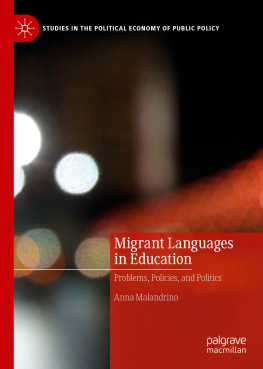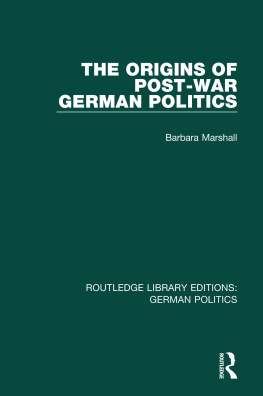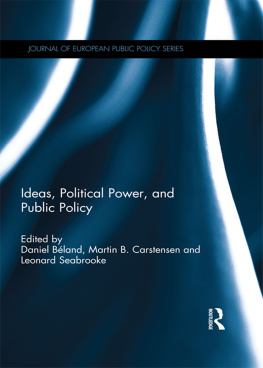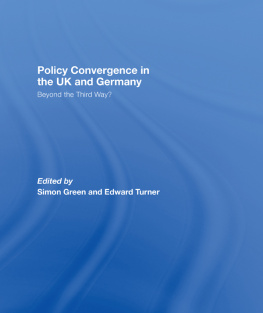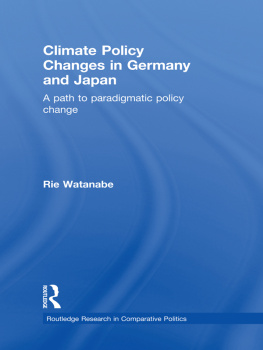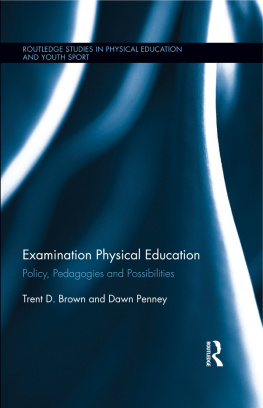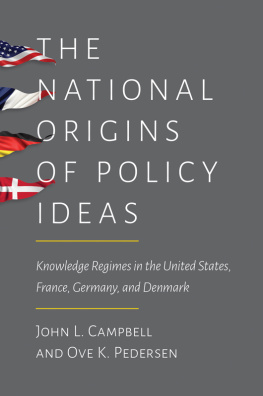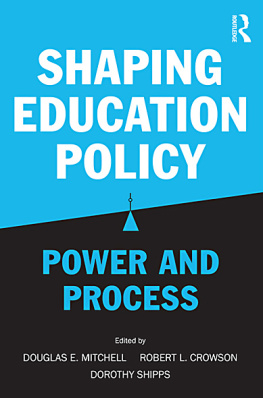ROUTLEDGE LIBRARY EDITIONS:
GERMAN HISTORY
Volume 34
THE POLITICAL RE-EDUCATION OF GERMANY AND HER ALLIES
THE POLITICAL RE-EDUCATION OF GERMANY AND HER ALLIES
After World War II
Edited by
NICHOLAS PRONAY AND KEITH WILSON
First published in 1985 by Croom Helm Ltd
This edition first published in 2020
by Routledge
52 Vanderbilt Avenue, New York, NY 10017
and by Routledge
2 Park Square, Milton Park, Abingdon, Oxon OX14 4RN
Routledge is an imprint of the Taylor & Francis Group, an informa business
1985 Nicholas Pronay and Keith Wilson
All rights reserved. No part of this book may be reprinted or reproduced or utilised in any form or by any electronic, mechanical, or other means, now known or hereafter invented, including photocopying and recording, or in any information storage or retrieval system, without permission in writing from the publishers.
Trademark notice: Product or corporate names may be trademarks or registered trademarks, and are used only for identification and explanation without intent to infringe.
British Library Cataloguing in Publication Data
A catalogue record for this book is available from the British Library
ISBN: 978-0-367-02813-8 (Set)
ISBN: 978-0-429-27806-8 (Set) (ebk)
ISBN: 978-0-367-24788-1 (Volume 34) (hbk)
ISBN: 978-0-429-28443-4 (Volume 34) (ebk)
Publishers Note
The publisher has gone to great lengths to ensure the quality of this reprint but points out that some imperfections in the original copies may be apparent.
Disclaimer
The publisher has made every effort to trace copyright holders and would welcome correspondence from those they have been unable to trace.
The POLITICAL RE-EDUCATION OF GERMANY & HER ALLIES
After World War II
Edited by Nicholas Pronay and Keith Wilson
1985 Nicholas Pronay and Keith Wilson
Croom Helm Ltd, Provident House, Burrell Row,
Beckenham, Kent BR3 1AT
Croom Helm Australia Pty Ltd, First Floor,
139 King Street, Sydney, NSW 2001, Australia
British Library Cataloguing in Publication Data
The Political re-education of Germany and her
allies after World War II.
1. Germany (West)Politics and government
I. Pronay, Nicholas II. Wilson, Keith M. 1951
320.07043 JN3971
ISBN 0-7099-2091-1
Printed and bound in Great Britain
by Billing & Sons Limited, Worcester.
CONTENTS
Introduction: To Stamp Out the Whole Tradition
Nicholas Pronay
Great War Prologue
Keith Wilson
The Planning of Re-education during the Second World War
Lothar Kettenacker
The Concept and Practice of Re-education in Germany 194550
Kurt Jrgensen
The Education Branch of the Military Government of Germany and the Schools
Arthur Hearnden
The Press in the British Zone of Germany
Kurt Koszyk
In Retrospect: Britains Policy of Re-education
Michael Balfour
Welt im Film : Anglo-American Newsreel Policy
Roger Smither
American Film Policy in the Re-education of Germany after 1945
David Culbert
The Re-education of Imperial Japan
Gordon Daniels
From Re-education to the Selling of the Marshall Plan in Italy
David Ellwood
This volume is the most recent outcome of the work of the Inter University History Film Consortium, founded in 1967 for the purpose of encouraging the study of the part played by modern persuasion techniques, including film and other mass media as well as publicity and propaganda agencies, in the political and social history of the twentieth century. Presently, the Consortium consists of the History departments of the Universities of Birmingham, Leeds, Nottingham, Reading, Wales, the London School of Economics and Political Science, Queen Mary College, London, the College of St Mark and St John, Plymouth and Westminster College, Oxford. The articles printed here have been prepared at the invitation of the Consortium. With the exception of those dealing with the first world war antecedents of the policy of re-education and that of Japan, they have been read at an international conference held in London in April 1983 and revised in the light of the discussion held with the participation of many of those involved in its planning and execution after 1945. I should like express our gratitude to Lord Annan, Sir Hugh Greene, Sir Duncan Wilson (whose last public appearance this Conference had sadly proved) Professor George Allen and Professor A.J. Ryder amongst others for their personal contributions, and to thank Dr Marcus Phillips and Professor Karl Stadler for their talks on the German film industry in the Adenauer period and on Austrian re-education.
In planning this volume, the Consortium hoped to provide, first, a reader on major aspects of the policy of re-education for undergraduates and others turning to the study of the post-war period, and second, to bring to the attention of the English speaking reader some of the fruits and perspectives of the extensive German work on this central, and intriguing, part of German and European history since 1945 .
The Consortium wishes to acknowledge the financial assistance provided by the British Academy and the German Academic Exchange Service; the help and advice in planning the volume given by Dr Lothar Kettenacker, Professor Michael Balfour and Professor J.A.S. Grenville, and to thank Dr Josef Foschepoth and Rolf Steiniger for making available the bibliography of German work on re-education prepared for their volume Die Britische Deutschland und Besatzungspolitik to be published under the aegis of the German Historical Institute.
It gives me personal pleasure to be able to express as Chairman on behalf of the Consortium the warmest thanks to Mrs Ann Dale and Mrs Margaret Walkington for preparing the volume for the press by wordprocessor technology and for their good humour and efficiency at moments of crisis arising out of it and to Mrs. Ann Hall for the Index.
Nicholas Pronay
Political re-education was the alternative put forward by Britain during the common wartime search for a policy which would prevent the resurgence of Germany for a third time as a hostile military power. Both the Americans and the Russians initially thought in terms of destroying the material capacity of Germany for going to war again in the foreseeable future. The Americans proposed, principally, the destruction of the economic and industrial capacity of Germany for making war by a ruthless and thorough demolition of what was left of it after the war. By flooding her mines, dismantling her heavy industry and similar measures, Germany was to be reduced, in the phrase of the so-called Morgenthau Plan, to a pastoral economy. Political dismemberment would complete the job. The Soviet Union thought in much the same terms of de-industrialisation but wished to complete it by the once-and for-all removal of Germanys political and social elite, a policy modelled on the same principles which the Soviets had already applied in the case of the Kulaks and the Polish officer class. []
The British alternative in fact was to go for the mind instead of the body. It sought to eradicate, by all the means available to the Military Government of an occupied country, the ideas and the ideals on which the authoritarian and militaristic political systems of Germany had been based and to substitute for them the ethical, philosophical and political ideas of Britain and her transatlantic descendants. The Germans were to be re-educated to embrace the rule of law; rechstat instead of real-politik; philosophical pragmatism instead of idealism in the Hegelian sense; constitutionalism instead of tatism. They were to be cured of militarism by learning to think of the soldier as the paid servant of the community rather than as the elite of the nation, and to unlearn that it was the state which legitimated the individual rather than the other way around. The realisation of this policy was to involve the control and manipulation not only of the media of opinion formation but also the agencies of attitude formation. It was to be effected by re-structuring the media of opinion formation, such as the press, radio and cinema to ensure a pluralist approach to kultur. By remaking and as far as possible re-staffing the educational system and reorienting the curricular and scholarly vehicles for attitude formation including the rewriting of the nations history that perhaps most powerful formulator of basic attitudes a long term change of outlook and attitudes would be secured. In all ways, the Germans were to be taught to look to Great Britain and to the English speaking world as their exemplar.


